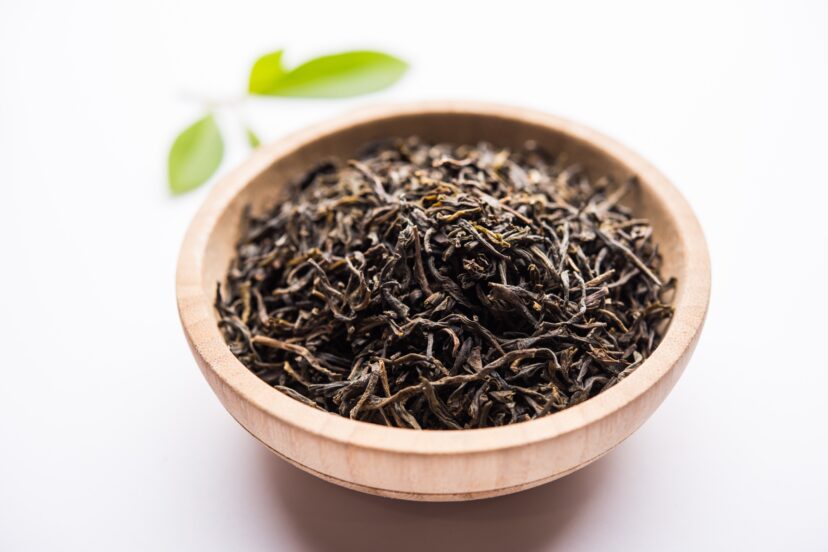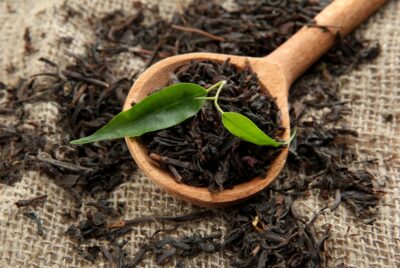Orange Pekoe Tea: A Journey into Flavor and Wellness
Are you a tea lover looking to explore something new and exciting? Let me introduce you to Orange Pekoe Tea. This exquisite tea, known for its rich flavor and numerous health benefits, is a must-try for any tea enthusiast. Let’s dive into the world of Orange Pekoe Tea and discover what makes it so special.
What is Orange Pekoe Tea?
Definition and Origin
Orange Pekoe Tea is a term used to describe a grade of black tea. Contrary to what the name might suggest, it doesn’t have anything to do with oranges. The term “Pekoe” comes from the Chinese word for “white down,” referring to the fine, white hairs on the young tea leaves. The leaves are whole, unbroken leaves that are carefully picked and processed to produce a high-quality black tea. Originating from regions like India, Sri Lanka, and China, Orange Pekoe Tea has a rich history and is cherished worldwide.
Grades of Orange Pekoe
The grading of Orange Pekoe Tea can be a bit complex. It includes various sub-grades like Flowery Orange Pekoe (FOP), Golden Flowery Orange Pekoe (GFOP), and Tippy Golden Flowery Orange Pekoe (TGFOP). Each grade signifies a different level of quality and leaf appearance. The higher the grade, the more delicate and flavorful the tea.
Health Benefits of Orange Pekoe Tea
Rich in Antioxidants
One of the standout benefits of Orange Pekoe Tea is its high antioxidant content. These antioxidants help combat free radicals in the body, reducing oxidative stress and lowering the risk of chronic diseases. Drinking Orange Pekoe Tea regularly can be a simple yet effective way to boost your overall health.
Boosts Heart Health
Studies show that Orange Pekoe Tea is particularly beneficial for heart health. It can help improve cardiovascular health by reducing the risk factors such as high cholesterol, high blood pressure, and triglyceride levels. Regular drinkers of this tea have shown lower rates of heart-related deaths. Moreover, the tea has been found to aid in lowering LDL cholesterol levels, which is often referred to as “bad” cholesterol due to its contribution to fatty build-ups in arteries.
Supports Digestive Health
Orange Pekoe Tea contains compounds that promote digestive health. The tannins in Orange Pekoe have positive effects on the digestive system. They can help soothe the digestive tract, reduce inflammation, and support healthy gut bacteria. If you struggle with digestive issues, sipping on a cup of Orange Pekoe might provide some relief.
Enhances Mental Alertness
Need a mental boost? Orange Pekoe Tea contains caffeine and L-theanine, which work together to enhance mental alertness and concentration. It’s a perfect pick-me-up for those long workdays or study sessions.
May Support Blood Sugar Levels
For those managing blood sugar levels and diabetes, Orange Pekoe Tea might play a supportive role. It has been linked with better insulin sensitivity and lower blood sugar levels after meals.
Bone Health
Some studies suggest that regular tea drinkers have stronger bones and lower risk of developing osteoporosis. This could be due to the presence of flavonoids in tea, which are known to enhance bone density.
Reduction in Cancer Risk
The polyphenols in Orange Pekoe, particularly theaflavins and thearubigins, have been shown to have anti-cancer properties. These compounds may help in reducing the growth of cancer cells and protecting against different types of cancer
How to Brew the Perfect Cup of Orange Pekoe Tea
Choosing the Right Tea Leaves
The first step to brewing a perfect cup of Orange Pekoe Tea is selecting high-quality tea leaves.
Opt for high-quality Orange Pekoe tea leaves rather than pre-packaged bags. Whole leaves retain more of their natural oils, flavor and nutrients, giving you a superior taste experience.
Water Quality
Water quality is crucial when brewing tea. Use filtered or spring water to avoid any off-flavors from tap water.
Use fresh, cold water that hasn’t been boiled before for brewing. The quality of the water affects the tea’s final taste. Soft water is generally recommended over hard water which can alter the taste and appearance of the tea.
Water Temperature
The ideal temperature for brewing Orange Pekoe Tea is around 200°F (93°C). This is just below boiling point, where small bubbles start to form but not a full rolling boil. Let it cool slightly before pouring. Water that is too hot can scorch the leaves and make the tea taste bitter.
Steeping Time
Steeping time can make or break your tea. For Orange Pekoe, a steeping time of 3-5 minutes is usually perfect. Too short, and you won’t extract enough flavor; too long, and it can become bitter. Adjust the time based on your taste preference.
Typically, Orange Pekoe should be steeped for about 3-5 minutes. Adjust the time based on your taste preference; a shorter time for a lighter brew and longer for a stronger flavor.
Serving Suggestions
Enjoy your Orange Pekoe Tea plain to savor its full flavor, or add a splash of milk or a slice of lemon for a delightful twist. Some people also like to sweeten it with a bit of honey or sugar. However, first taste it plain to appreciate its true flavor before deciding to add anything. Experiment to find your perfect cup.
Different Ways to Enjoy Orange Pekoe Tea
Orange Pekoe tea, a rich and flavorful type of black tea, offers versatile enjoyment options, whether served hot or cold, and can be tailored to personal taste preferences. Here are different ways you can enjoy Orange Pekoe tea:
Classic Hot Tea:
The traditional way to enjoy Orange Pekoe is to brew it hot. This method allows you to savor the full depth of its flavor. You can drink it plain or enhance it with milk or a slice of lemon. Adding a bit of sugar or honey can also complement its robust taste.
Iced Orange Pekoe Tea:
For a refreshing twist, Orange Pekoe can be made into iced tea. Brew the tea stronger than usual, as it will be diluted with ice. Once brewed, cool it to room temperature and then refrigerate. Serve over ice, with a slice of lemon or mint for an extra refreshing touch. Some people enjoy sweetening their iced tea with sugar or honey while it’s still warm, as this helps dissolve the sweetener more effectively.
Orange Pekoe Tea Latte:
For a creamy delight, make an Orange Pekoe tea latte. Brew the tea strong, and mix with steamed milk. You can add flavorings such as vanilla, cinnamon, or nutmeg, and sweeten as desired with sugar or honey. This can be a comforting beverage, especially in cooler weather.
Tea Blends:
Mix Orange Pekoe with other teas to create custom blends. Combining it with a green tea can lighten its robustness while adding a different antioxidant profile. Mixing with herbal teas like peppermint or chamomile can offer a unique flavor and enhance the tea’s natural soothing properties.
Cooking and Baking:
Incorporate brewed Orange Pekoe tea into recipes. It can add a unique flavor to both sweet and savory dishes. For example, it can be used to poach fruits, in marinades for meats, or as a liquid in baking, adding a subtle tea-flavored nuance to cakes and breads.
Cocktails and Mocktails:
Use brewed Orange Pekoe tea as a base for cocktails and mocktails. It pairs well with various spirits, such as bourbon or rum, for a tea-infused cocktail, or it can be used in non-alcoholic beverages mixed with juices and a touch of sweetener.
Tea-Infused Desserts:
Orange Pekoe tea can be used to infuse creams or custards, offering a sophisticated flavor twist to classic desserts. Consider steeping the tea in milk or cream before using it to make panna cotta, crème brûlée, or ice cream.
Chai Blend:
Make a homemade chai by adding spices such as cinnamon, cardamom, cloves, and ginger to your Orange Pekoe tea. Simmer the tea with spices and sweeten with honey or sugar. Add milk or a milk alternative to create a comforting chai latte.
Herbal Mixes:
Combine Orange Pekoe with dried herbs such as lavender, rose petals, or hibiscus for a floral blend. These additions not only enhance the flavor but also add beautiful color and aroma, making your tea time a more sensory experience.
Tea Smoothies:
Blend a cooled brew of Orange Pekoe tea with fruits like peaches, bananas, or berries for a refreshing smoothie. Adding a bit of honey, yogurt, or almond milk can provide additional texture and flavor.
Tea-Scented Rice or Grains:
Use brewed Orange Pekoe tea instead of water to cook rice or grains like quinoa. The tea imparts a subtle aroma and flavor that pairs well with both sweet and savory dishes.
Marinades:
Utilize the robust flavor of Orange Pekoe in marinades for meat or tofu. The tannins in the tea help tenderize the protein while adding a unique flavor profile that enhances the dish.
Afternoon Tea Pairings:
Create a themed afternoon tea where Orange Pekoe is paired with a variety of finger sandwiches, scones, and pastries. Each pairing can highlight different aspects of the tea’s flavor, such as its richness or aromatic qualities.
These innovative uses can help transform an ordinary tea time into a more creative and enjoyable culinary adventure.
Pairing Orange Pekoe Tea with Food
Breakfast Options
Orange Pekoe Tea pairs wonderfully with breakfast foods. Try it with classic breakfast items like toast, eggs, and bacon, or enjoy it with a hearty bowl of oatmeal. The tea’s robust flavor complements a variety of morning meals.
Afternoon Snacks
For an afternoon snack, pair your tea with light bites like sandwiches, scones, or pastries. The tea’s tannins balance well with the richness of these foods, making it a delightful tea time treat.
Desserts and Sweet Treats
Orange Pekoe Tea can also be a fantastic companion to desserts. Enjoy it with cakes, cookies, or even chocolate. The tea’s subtle astringency cuts through the sweetness, creating a harmonious balance of flavors.
The Cultural Significance of Orange Pekoe Tea
In Asian Cultures
In many Asian cultures, tea is more than just a beverage; it’s a part of their heritage. Orange Pekoe Tea, with its origins in China and India, holds a special place in traditional tea ceremonies and daily rituals. It’s a symbol of hospitality and respect.
In Western Countries
In the West, Orange Pekoe Tea has gained popularity as a staple in many households. It’s often enjoyed during afternoon tea, a tradition that originated in Britain. The tea’s rich flavor and history make it a beloved choice for tea lovers.
Storing Tea
Proper storage of Orange Pekoe tea is essential to maintain its delicate flavor and aroma. Here are some tips based on various expert recommendations on how to store this high-grade black tea effectively:
- Airtight Containers: Store in an airtight container to protect it from air and moisture, which can degrade the tea’s quality over time. This helps preserve its freshness and prevents the absorption of odors which could alter its natural flavor.
- Cool and Dark Place: Keep the tea away from direct sunlight and heat sources. A pantry or a cabinet that does not receive direct sunlight or heat is ideal. Light and heat can cause deterioration of the tea leaves, leading to loss of flavor and aroma.
- Away from Strong Odors: Since tea leaves can absorb odors, it’s crucial to store them away from spices, coffee, or any strongly scented items that could impart unwanted flavors to your tea.
- Use Quickly After Opening: While tea can last a long time, its quality is best preserved if used relatively quickly after opening. Frequent exposure to air every time the container is opened can gradually diminish the tea’s quality.
Following these storage tips will help ensure that your Orange Pekoe tea remains fresh and retains its quality, providing a delightful and aromatic cup every time you brew it.
Comparison of Orange Pekoe Tea with Other Popular Black Teas
Orange Pekoe tea, while classified as a high-quality black tea, differs from other well-known black teas in flavor, origin, and grading systems. Here’s a brief comparison with some popular varieties:
Darjeeling Tea
Often referred to as the “Champagne of teas,” Darjeeling Tea is grown in the foothills of the Himalayas. It has a lighter, more floral flavor compared to the robust and full-bodied Orange Pekoe. Darjeeling is also graded differently (e.g., SFTGFOP for high-quality tea), and its unique taste is often described as musky and slightly astringent.
Ceylon Tea
Grown in Sri Lanka, Ceylon tea has a bold, brisk flavor with hints of citrus and spice. Like Orange Pekoe, it’s a black tea, but Ceylon’s terroir imparts a distinctive, tangy flavor that can be stronger and more aromatic, depending on the region where it’s grown (low, mid, or high elevation). Both are rich in antioxidants, but Ceylon is often more astringent than Orange Pekoe.
Irish Breakfast Tea
Known for its strength and malty flavor, Irish Breakfast tea is typically a blend of Assam and other black teas, making it much stronger and more full-bodied than Orange Pekoe. It’s commonly consumed with milk and sugar. In contrast, Orange Pekoe, while robust, is milder and can be enjoyed without additives.
Assam Tea
Assam tea, grown in the Assam region of India, is a major component of many breakfast teas like English or Irish blends. It has a deep, malty flavor and is stronger than Orange Pekoe. The high tannin content gives Assam tea a bold, sometimes brisk taste.
English Breakfast Tea
Typically a blend of Assam, Ceylon, and Kenyan teas, English Breakfast tea has a rich and full-bodied taste, much stronger than Orange Pekoe. While Orange Pekoe focuses more on the quality of leaves, English Breakfast emphasizes strength and malty flavor.
In summary, while Orange Pekoe offers a balanced, smooth flavor and focuses on leaf quality, other black teas like Darjeeling and Assam provide more distinctive regional tastes, from floral to malty, with varying strengths. Each has its unique charm, depending on personal preferences.
Final Thoughts
Orange Pekoe tea, a distinguished variety of black tea, stands out for its rich flavor and a multitude of health benefits, making it a delightful addition to any tea lover’s collection. Whether you’re enjoying it as a warm, comforting brew or chilled for a refreshing summer drink, Orange Pekoe adapts beautifully to your preferences. Incorporating it into recipes, using it in desserts, or crafting creative tea-infused cocktails can further elevate your culinary experiences. Its versatility and healthful properties ensure that Orange Pekoe tea isn’t just a beverage but a journey into the art of tea appreciation. Explore, experiment, and enjoy the vibrant world of Orange Pekoe tea.
FAQs
Can I drink Orange Pekoe Tea every day?
Yes, drinking it daily can be beneficial due to its antioxidants and other health-promoting properties. However, moderation is key, especially if you’re sensitive to caffeine.
Does Orange Pekoe Tea have more caffeine than other teas?
Orange Pekoe Tea has a moderate caffeine content, generally less than coffee but more than green tea. It’s a good middle ground for those seeking a mild caffeine boost.
Can Orange Pekoe tea help with weight management?
Orange Pekoe tea contains antioxidants and polyphenols that may aid in metabolism and fat oxidation, potentially supporting weight management efforts. Some studies suggest that the catechins in black tea can help reduce body weight, particularly when consumed regularly as part of a balanced diet.
Is Orange Pekoe tea suitable for evening consumption?
While Orange Pekoe tea contains caffeine, its levels are typically lower than those found in coffee. However, sensitivity to caffeine varies among individuals, so it may still affect sleep if consumed too late in the day. If you are sensitive to caffeine, consider enjoying it earlier in the day or opting for a decaffeinated version.
How does Orange Pekoe tea compare to green tea in terms of health benefits?
Both Orange Pekoe (black tea) and green tea offer significant health benefits due to their high levels of antioxidants. However, the specific antioxidants differ due to the fermentation process black tea undergoes. Green tea is higher in catechins, while black tea contains more theaflavins and thearubigins. Both types of tea support heart health, aid in digestion, and can enhance mental alertness, but the choice between them can depend on personal taste preferences and how your body responds to each.




